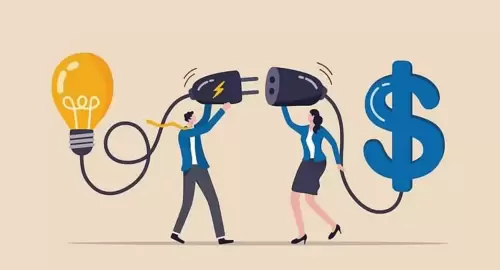 |
|
 |
|
 |
|
 |
|
 |
|
 |
|
 |
|
 |
|
 |
|
 |
|
 |
|
 |
|
 |
|
 |
|
 |
|
2025年3月25日,尼日利亞朝著規範其快速增長的加密貨幣領域邁出了決定性的一步。總統博拉·蒂努布(Bola Tinubu)簽署了期待已久的投資和證券法(2025),取代了2007年過時的版本。

On March 25, 2025, President Bola Tinubu of Nigeria signed the long-awaited Investments and Securities Act (2025), replacing the 1999 version and bringing a key change: the legal recognition of digital assets as securities.
2025年3月25日,尼日利亞的總統博拉·蒂努布(Bola Tinubu)簽署了期待已久的投資和證券法(2025年),取代了1999年的版本並帶來了關鍵變更:對數字資產作為證券的法律認可。
The Act, which comes after years of discussion and a pressing need for a clear regulatory framework, grants the Securities and Exchange Commission (SEC) wide-ranging authority over the issuance, trading, and promotion of digital assets, essentially legalising crypto under capital market rules.
該法案經過多年的討論以及對明確的監管框架的迫切需求,該法案授予了證券交易委員會(SEC)廣泛的權力,以發行,交易和促進數字資產,在資本市場規則下基本使加密貨幣合法化。
The SEC can now monitor the activities of securities exchanges, conduct audits, impose penalties, suspend company operations, and even remove their executives. While the law legitimises crypto, questions remain over how its enforcement will unfold.
SEC現在可以監視證券交易所的活動,進行審計,施加罰款,暫停公司運營,甚至撤職。儘管法律使加密貨幣合法化,但有關其執行方式的問題仍然存在。
A framework years in the making
製作框架幾年
The legal status of crypto in Nigeria has been a subject of debate for some time. In 2021, the Central Bank of Nigeria (CBN) ordered banks to close accounts of crypto startups, effectively shutting them out of the formal financial system. In response, startups began routing payments through offshore banking partners or pivoting to peer-to-peer (P2P) models for handling user funds.
一段時間以來,尼日利亞加密貨幣的法律地位一直是辯論的主題。 2021年,尼日利亞中央銀行(CBN)命令銀行關閉加密初創公司的帳戶,有效地將其拒之門外。作為回應,初創企業開始通過離岸銀行合作夥伴進行路由付款,或者與點對點(P2P)模型轉向處理用戶資金。
The SEC also began issuing circulars warning against pyramid schemes disguised as crypto investment and launched the Accelerated Regulatory Incubation Programme (ARIP) in June 2024—a regulatory sandbox for digital innovation. However, despite these efforts, no legislation was passed to provide a complete picture of crypto regulation in the country.
SEC還開始發出通函警告,以偽裝為加密投資的金字塔計劃,並於2024年6月啟動了加速的監管孵化計劃(ARIP),這是一種用於數字創新的監管沙盒。但是,儘管做出了這些努力,但沒有通過立法來提供該國加密監管的完整圖片。
The new Act, which is comprised of 226 pages and replaces the 1999 version of the Investments and Securities Act, introduces a definition of "digital asset" as "a digital token that represents assets such as a debt or equity claim on the issuer or a mineral right, or an interest in a pool of assets or in a venture capital or private equity fund, or an asset that is issued on a blockchain."
新法案由226頁組成並取代了1999年的《投資和證券法》,將“數字資產”的定義定義為“代表發行人或礦產權利的債務或股權索賠等資產的數字令牌,或在資產資產庫中或在企業資本或私人資金中的利息,或者在簽發上或簽發一家股票上的股票。
This definition encompasses cryptocurrencies like Bitcoin and Ether, stablecoins, security tokens, and potentially tokenised real-world assets used as investments or that hold trading value.
該定義包括比特幣和以太,穩定的加密貨幣,安全令牌以及可能用作投資或具有交易價值的代幣現實資產的潛在標記的現實資產。
The Act also grants the SEC oversight over token issuers, including meme coin creators and projects raising funds through utility or investment-based coins (initial coin offerings). Those creating and promoting tokens with trading value or intended to act as stores of value will now face tighter regulatory scrutiny.
該法案還對代幣發行人進行了SEC監督,包括模因硬幣創建者和項目通過公用事業或基於投資的硬幣(初始硬幣產品)籌集資金。那些以交易價值或打算充當價值存儲的代幣的人現在將面臨更嚴格的監管審查。
Get the best African tech newsletters in your inbox
在收件箱中獲取最好的非洲科技新聞通訊
Implications for startups and foreign operators
對初創企業和外國運營商的影響
Prior to the signing of the ISA, the SEC mandated digital asset exchanges and foreign operators to establish a physical presence in Nigeria to ensure closer supervision. With full regulatory backing now in place, that requirement is likely to be enforced more firmly.
在簽署ISA之前,SEC要求在尼日利亞建立實體存在,以確保更緊密的監督。隨著現在的全面監管支持,這一要求可能會更牢固地執行。
This decision has raised concerns for local startups who heavily rely on infrastructure providers like Stellar, Ethereum, Solana, Polygon, and developer tools such as Alchemy or Infura.
這一決定引起了人們對當地初創企業的擔憂,這些初創企業在很大程度上依賴基礎設施提供商,例如Stellar,以太坊,Solana,Polygon和開發人員工具,例如Alchemy或Infura。
For instance, Web3 startups like Sytemap, a Nigerian Web3 real estate marketplace, utilize the Stellar blockchain to store property and transaction records. Others rely on foreign APIs and infrastructure to provide crypto wallets, blockchain payments, run analytics, and manage core backend services.
例如,尼日利亞Web3房地產市場Sytemap之類的Web3初創公司使用Stellar區塊鏈來存儲屬性和交易記錄。其他人則依靠外國API和基礎設施來提供加密錢包,區塊鏈付款,運行分析和管理核心後端服務。
Startups build their decentralised finance (DeFi) apps on low-cost blockchains like Stellar. They also integrate stablecoins like USDC and USDT by connecting to the infrastructure provided by Circle and Tether, two of the world’s largest stablecoin providers. Foreign infrastructure providers offer the building blocks that make local startups viable.
初創公司在諸如Stellar之類的低成本區塊鏈上建立了分散的財務(DEFI)應用程序。他們還通過連接到世界上兩個最大的Stablecoin提供商Circle and Tether提供的基礎架構來集成像USDC和USDT這樣的Stablecoin。外國基礎設施提供商提供了使本地初創公司可行的基礎。
But the obligation of these foreign infrastructure providers to register in order to operate locally will depend on how the SEC enforces its mandate. If the regulator imposes strict requirements on foreign players, it could trigger resistance, potentially affecting local developers who depend on their tools and networks.
但是,這些外國基礎設施提供商必須註冊以在當地運營的義務取決於SEC如何執行其授權。如果監管機構對外國玩家施加了嚴格的要求,它可能會觸發抵抗力,可能會影響依賴其工具和網絡的當地開發人員。
"We built our tech stack on Stellar because of the immutability advantage, plus we wanted to limit how often we move things around," said Ndifreke Ikokpu, CTO and co-founder of Sytemap, a Nigerian blockchain-based real estate marketplace. "We are compliant with local consumer and data privacy laws, but the provisions of the Act don’t quite apply to us now, unless we start trading. And that’s not something we’re thinking about."
尼日利亞區塊鏈的房地產市場Sytemap的聯合創始人Ndifreke Ikokpu說:“由於具有不變性的優勢,我們在Stellar上建立了技術堆棧,而且我們希望限制我們四處移動的頻率。” “我們遵守當地消費者和數據隱私法,但是該法案的規定現在不完全適用於我們,除非我們開始交易。這不是我們正在考慮的事情。”
Some of these blockchain networks, which provide funding to Nigerian Web3 builders—a crucial alternative during macroeconomic slowdowns—include Stellar through its Stellar Development Foundation scheme, Sui, Solana, and Lisk.
這些區塊鍊網絡中的一些為尼日利亞的Web3建築商提供了資金,這是宏觀經濟放緩期間的至關重要的選擇 - 包括其出色的開發基金會計劃,SUI,SOLANA和LISK。
However, regulating foreign blockchain infrastructure players is a two-sided coin.
但是,規範外國區塊鏈基礎設施參與者是雙面硬幣。
The Stellar blockchain has a utility token called $XLM. If $XLM is classified as a ‘security’ in Nigeria, based on the SEC’s definition, compliance obligations would generally fall on several parties.
恆星區塊鏈具有稱為$ XLM的實用程序令牌。如果根據SEC的定義將$ XLM歸類為尼日利亞的“安全性”,則合規義務通常會落在多方。
Crypto exchanges that facilitate the buying, selling, or trading of $XLM would be classified as securities exchanges and must comply with local laws. Retail investors could be paying tax on capital gains—profits made from selling assets like $XLM at a higher price than they bought it—if the tax
促進購買,出售或交易$ XLM的加密交易所將被歸類為證券交易所,必須遵守當地法律。散戶投資者可能會對資本收益繳稅 - 如果稅收稅款,則以$ XLM的價格出售諸如$ XLM之類的資產製成
免責聲明:info@kdj.com
所提供的資訊並非交易建議。 kDJ.com對任何基於本文提供的資訊進行的投資不承擔任何責任。加密貨幣波動性較大,建議您充分研究後謹慎投資!
如果您認為本網站使用的內容侵犯了您的版權,請立即聯絡我們(info@kdj.com),我們將及時刪除。
-

-

- 2025年5月的前6個模因硬幣:為什麼北極帕勃羅硬幣凍結比賽
- 2025-05-11 14:30:13
- 最初的數字笑話現在已經演變為數百萬美元的市場破壞者。
-

- Coinbase以$ 2.9B的價格收購了Deribit,這是加密貨幣歷史上最大的併購活動。
- 2025-05-11 14:25:12
- 編譯者:Luffy,預見新聞
-

-

-

- LDO的下一階段進化:雙重治理機制
- 2025-05-11 14:20:13
- 領先的以太坊液體蒸發平台Lido發布了其雙重治理機制的提案,這將是該協議演變的下一階段。
-

- 隨著市場集會,比特幣(BTC)的價格超過$ 10萬美元
- 2025-05-11 14:15:12
- 2025年5月9日,加密貨幣市場舉行了強烈的集會,比特幣(BTC)自一月以來首次損失了103,000美元。
-

-




























































